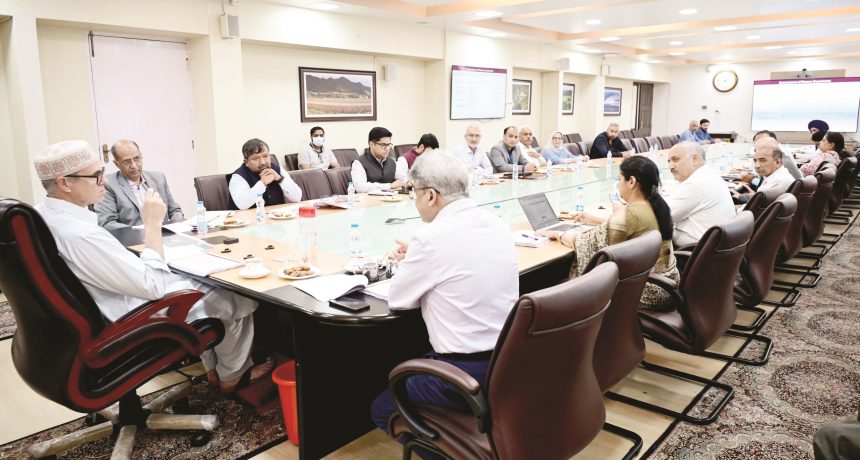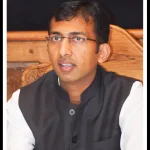Srinagar, May 19: Chief Minister Omar Abdullah today chaired a high-level meeting to review proposals for the comprehensive reorganisation of departments and agencies under the Housing and Urban Development Department (HUDD).
Emphasising the need to strengthen institutional capacity, he said the proposed changes are essential to ensure effective implementation of urban initiatives and their long-term sustainability across Jammu and Kashmir.
The meeting was attended by Advisor to the Chief Minister Nasir Aslam Wani, Chief Secretary Atal Dulloo, Additional Chief Secretary to the Chief Minister Dheeraj Gupta, Commissioner Secretary H&UDD Mandeep Kaur, as well as senior officials from Srinagar and Jammu Municipal Corporations, the Srinagar Development Authority, Lakes Conservation & Management Authority, and other key urban governance bodies.
Speaking on the occasion, Chief Minister Omar Abdullah said the implementation of these restructuring proposals would significantly enhance the operational capabilities of the Housing and Urban Development Department, while also generating substantial financial savings and streamlining governance. “These reforms are aligned with our broader vision of sustainable urban development, transparency, and administrative efficiency,” he said.
Earlier, Commissioner Secretary H&UDD Mandeep Kaur presented a comprehensive overview of the reorganisation plan, aimed at enhancing operational efficiency, clarifying institutional roles, and improving service delivery across the Union Territory. She informed the gathering that the proposals, which have already received financial concurrence, are designed to optimise human resource deployment and strengthen urban governance mechanisms.
One of the major proposals involves the restructuring of the Jammu & Kashmir Housing Board, which currently has over 50 per cent of its staff in Class IV positions. The plan aims to rationalise this imbalance by creating technical posts to improve the board’s functionality and efficiency. Similarly, the restructuring of the Lakes Conservation & Management Authority (LCMA) includes the re-designation of scientific and technical posts to align with Pollution Control Committee standards, while also streamlining administrative roles to eliminate redundancy and enhance scientific capability.
The Town Planning Organisation (TPO) will also see a revamp, with the creation of specialised units, policy cells, and a realignment of field offices to better coordinate project implementation and meet the growing demands of modern urban development. Structural changes have also been proposed for the Architects Organisation, established in 1971, to revitalise its role in executing high-value infrastructure projects and align its operations with present-day needs.
In view of the expanded responsibilities of the Srinagar Municipal Corporation (SMC) following the 74th Constitutional Amendment, the reorganisation proposal seeks to address the current manpower and budgetary constraints by redefining its administrative structure to enhance efficiency and improve service delivery. The Directorate of Urban Local Bodies (ULBs) for Jammu and Kashmir is also set for restructuring, with focus on addressing staffing shortages, administrative overlaps, and urban sanitation challenges. Special attention has been given to creating posts related to environmental protection and rationalising enforcement and revenue staff.
The Jammu Development Authority (JDA) has already received board approval for its restructuring proposal, which is currently with the Administrative Department for further review. The Srinagar Development Authority (SDA) will undergo a detailed comparative restructuring of both gazetted and non-gazetted posts, aimed at strengthening project execution capabilities and improving policy implementation across rapidly expanding urban areas.
The Urban Environmental Engineering Department (UEED) is also set for a revamp, with proposals focusing on strengthening technical manpower and introducing reforms to improve scientific waste management, drainage systems, and sanitation services. The meeting also took note of the newly framed recruitment rules of the Jammu Municipal Corporation, which have been developed in line with the broader reorganisation efforts.
The proposed changes, once implemented, are expected to modernise urban governance in Jammu and Kashmir and prepare key institutions to manage the increasing pressures of urbanisation in a more effective, accountable, and future-ready manner.








